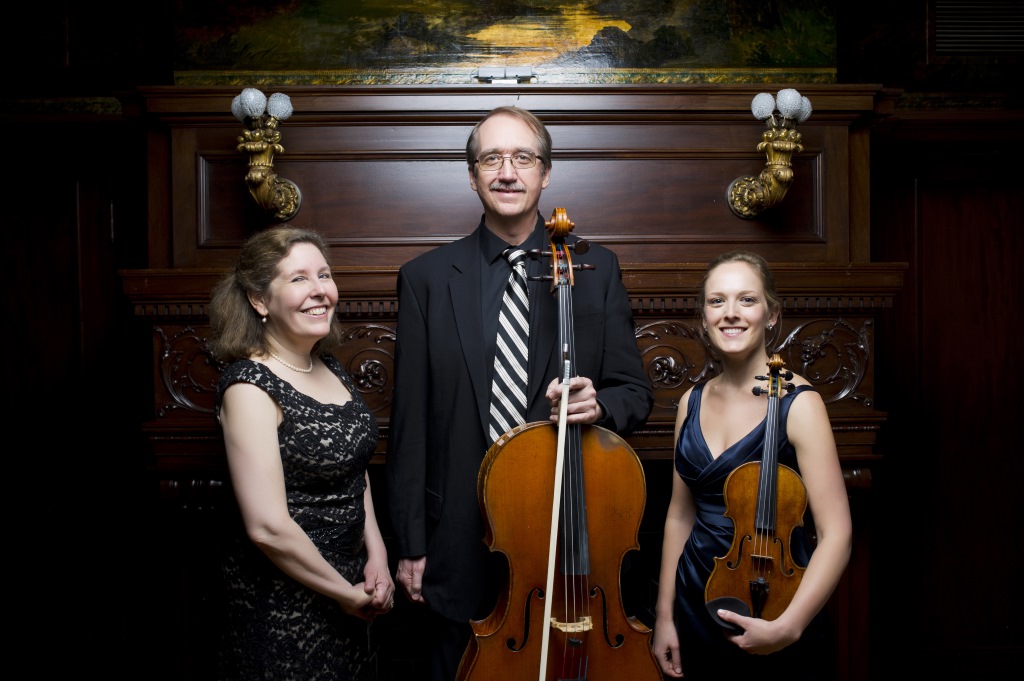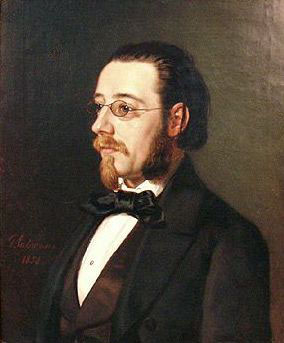4 Talented Composers
Prometheus Trio begins new season and new era with works by Donizetti, Korngold, Suk, and Smetana
The Prometheus Trio opens this season with performances at the Wisconsin Conservatory of Music next Monday and Tuesday, September 28 and 29. Pianist Stefanie Jacob and cellist Scott Tisdel welcome violinist Margot Schwartz as the newest member of the Trio – only the third membership change over the 16 year history of the Trio. Schwartz was well received as a guest artist in two of last season’s concerts.
Most program choices will be new for those who attend.
Italian opera composer Gaetano Donizetti is certainly not known for his chamber music. And perhaps his youthful piano trio, Trio in E-flat major (1817), would seem to be an intermezzo. As Jacob points out – “The violin and cello parts often seem to be playing the roles of soprano and tenor, the piano is the orchestra, accompanying and supporting the melody.” The work offers a short cheerful – very Italian – opening for the concert.
One does not think of Eric Korngold as a chamber music composer either. His Trio in D Major, Op. 1 (1909) was written as a young student, but established his credentials as an accomplished composer. Exiled to the United States, his reputation was built by lavish Hollywood film scores.
Korngold’s piano trio introduces a “descending tritone” that establishes an unusual harmonic impression. A scherzo built upon an energetic waltz rhythm and inventive pizzicato and inventive, balanced development complete the work.
Josef Suk was commissioned in 1902 to write a tribute to Slavonic poet, Julius Zeyer. This short, beautiful work, Elegie, Op. 23 (1902) has been frequently performed and may be the only familiar work on the program to many.
Bedrich Smetana nationalistic and personal perspective pervades many of his compositions – particularly his tone poems such as Ma Vlast. But he wrote only three chamber works; each well received. He wrote Trio in G Minor, Op. 15 (1855, rev. 1857) after the death his young daughter. This is not a quiet elegy. Smetana opens with dark elegiac passages. After the opening, Smetana addresses his grief through energetic and dramatic development. Passages recalling his daughter are interspersed with intense, grief-stricken themes. Critic Rovi Staff explores the programmatic aspects of the trio – “This alternation between dark and light – death and daughter – vividly continues throughout all three movements in a convincing expression of inconsolable grief illuminated within by nostalgia, the terror of tragedy juxtaposed with the gracious nobility of what it destroyed.” The trio ends on a note of affirmation.
Jacob observes that “Margot has a particularly luscious sound, which is very much in evidence at the start of the Smetana, which opens with violin alone.”
This trio is an effective choice as a closing statement for the evening.
Aside from the Suk Elegie, the evening introduces works by composers with substantial reputations as composers but a limited reputation for chamber music. The selections demonstrate the skills of these talented composers and make for a great concert of romantic era music.
The Prometheus Trio will perform twice – at 7:30 pm Monday, September 28 and 29 at the Wisconsin Conservatory of Music on 1584 N Prospect Avenue. For ticket and parking information see the WCM website or call (414) 276-5760.
Complimentary parking is available at Milwaukee Eye Care, 1684 N. Prospect Ave., located one block north of the Conservatory, for evening concerts.
The Trio’s next concert is scheduled for December 7 and 8 at 7:30 pm. They will play works by Edvard Grieg, Ludwig van Beethoven, Rodon Shchedrin and Maurice Ravel.
Preview
-
Fun With Baroque Music
 Jan 22nd, 2026 by Michael Barndt
Jan 22nd, 2026 by Michael Barndt
-
Acclaimed Scandinavian Singers Come to Town
 Jan 13th, 2026 by Martha Brown
Jan 13th, 2026 by Martha Brown
-
Milwaukee Musaik Performs 20th Century Classic
 Jan 5th, 2026 by Michael Barndt
Jan 5th, 2026 by Michael Barndt






















